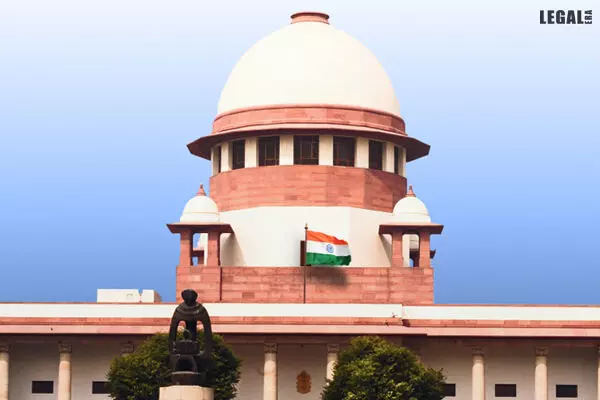- Home
- News
- Articles+
- Aerospace
- Artificial Intelligence
- Agriculture
- Alternate Dispute Resolution
- Arbitration & Mediation
- Banking and Finance
- Bankruptcy
- Book Review
- Bribery & Corruption
- Commercial Litigation
- Competition Law
- Conference Reports
- Consumer Products
- Contract
- Corporate Governance
- Corporate Law
- Covid-19
- Cryptocurrency
- Cybersecurity
- Data Protection
- Defence
- Digital Economy
- E-commerce
- Employment Law
- Energy and Natural Resources
- Entertainment and Sports Law
- Environmental Law
- Environmental, Social, and Governance
- Foreign Direct Investment
- Food and Beverage
- Gaming
- Health Care
- IBC Diaries
- In Focus
- Inclusion & Diversity
- Insurance Law
- Intellectual Property
- International Law
- IP & Tech Era
- Know the Law
- Labour Laws
- Law & Policy and Regulation
- Litigation
- Litigation Funding
- Manufacturing
- Mergers & Acquisitions
- NFTs
- Privacy
- Private Equity
- Project Finance
- Real Estate
- Risk and Compliance
- Student Corner
- Take On Board
- Tax
- Technology Media and Telecom
- Tributes
- Viewpoint
- Zoom In
- Law Firms
- In-House
- Rankings
- E-Magazine
- Legal Era TV
- Events
- Middle East
- Africa
- News
- Articles
- Aerospace
- Artificial Intelligence
- Agriculture
- Alternate Dispute Resolution
- Arbitration & Mediation
- Banking and Finance
- Bankruptcy
- Book Review
- Bribery & Corruption
- Commercial Litigation
- Competition Law
- Conference Reports
- Consumer Products
- Contract
- Corporate Governance
- Corporate Law
- Covid-19
- Cryptocurrency
- Cybersecurity
- Data Protection
- Defence
- Digital Economy
- E-commerce
- Employment Law
- Energy and Natural Resources
- Entertainment and Sports Law
- Environmental Law
- Environmental, Social, and Governance
- Foreign Direct Investment
- Food and Beverage
- Gaming
- Health Care
- IBC Diaries
- In Focus
- Inclusion & Diversity
- Insurance Law
- Intellectual Property
- International Law
- IP & Tech Era
- Know the Law
- Labour Laws
- Law & Policy and Regulation
- Litigation
- Litigation Funding
- Manufacturing
- Mergers & Acquisitions
- NFTs
- Privacy
- Private Equity
- Project Finance
- Real Estate
- Risk and Compliance
- Student Corner
- Take On Board
- Tax
- Technology Media and Telecom
- Tributes
- Viewpoint
- Zoom In
- Law Firms
- In-House
- Rankings
- E-Magazine
- Legal Era TV
- Events
- Middle East
- Africa
Supreme Court Halts NBCC Takeover Of Supertech’s Stalled Projects

Supreme Court Halts NBCC Takeover Of Supertech’s Stalled Projects
The Supreme Court has stayed the National Company Law Appellate Tribunal’s (NCLAT) December order directing NBCC (India) to take over and complete all 16 real estate projects of the debt-ridden Supertech Ltd. The order had also appointed NBCC as the project management consultant for the stalled projects.
NBCC was tasked with completing 16 projects comprising approximately 49,748 flats across Uttar Pradesh, Uttarakhand, Haryana, and Karnataka. The appellate tribunal further directed the formation of an apex court committee and individual project-wise committees for oversight.
A bench led by Chief Justice Sanjiv Khanna sought responses from multiple parties, including Supertech’s suspended director Ram Kishor Arora, its resolution professional Hitesh Goel, NBCC, and other stakeholders. Several entities, including Assets Care and Reconstruction Enterprise (ACRE) and Yamuna Expressway Industrial Development Authority (YEIDA), challenged the NCLAT order, which mandated NBCC to commence work before March 31, 2025.
The Supreme Court stated that the primary issue was whether NCLAT had the authority to assign construction work to NBCC without following the due process under the Insolvency and Bankruptcy Code (IBC), 2016. The bench directed the concerned parties to submit written proposals by March 21, outlining alternative solutions for completing the stalled projects. The matter has been listed for further hearing in April.
Earlier, in May 2023, the Supreme Court had declined to interfere with NCLAT’s decision, which had opted for a project-wise resolution approach for Supertech. The company was admitted to insolvency proceedings in March 2022 for defaulting on a ₹431 crore loan owed to a consortium led by Union Bank of India.
YEIDA, in its appeal, argued that NCLAT improperly adopted a "reverse CIRP" or project-wise insolvency approach, which has no legal foundation under the IBC. It contended that such a mechanism is outside the statutory framework of the Code.
Similarly, ACRE argued that NCLAT’s decision to create an apex court committee with broad powers—such as reallocating surplus funds between projects, overriding financial creditors' rights, and using funds for corporate-level dues—violated the principles of the IBC. ACRE warned that such redistribution could undermine the priority of secured creditors as established under Section 53 of the Code.
YEIDA also highlighted that Supertech had defaulted on lease payments for its “Project Upcountry” development, accumulating dues of over ₹396.76 crore. It argued that diverting funds from secured projects to cover corporate-level obligations would be prejudicial to financial creditors and disrupt the integrity of the insolvency resolution process.



